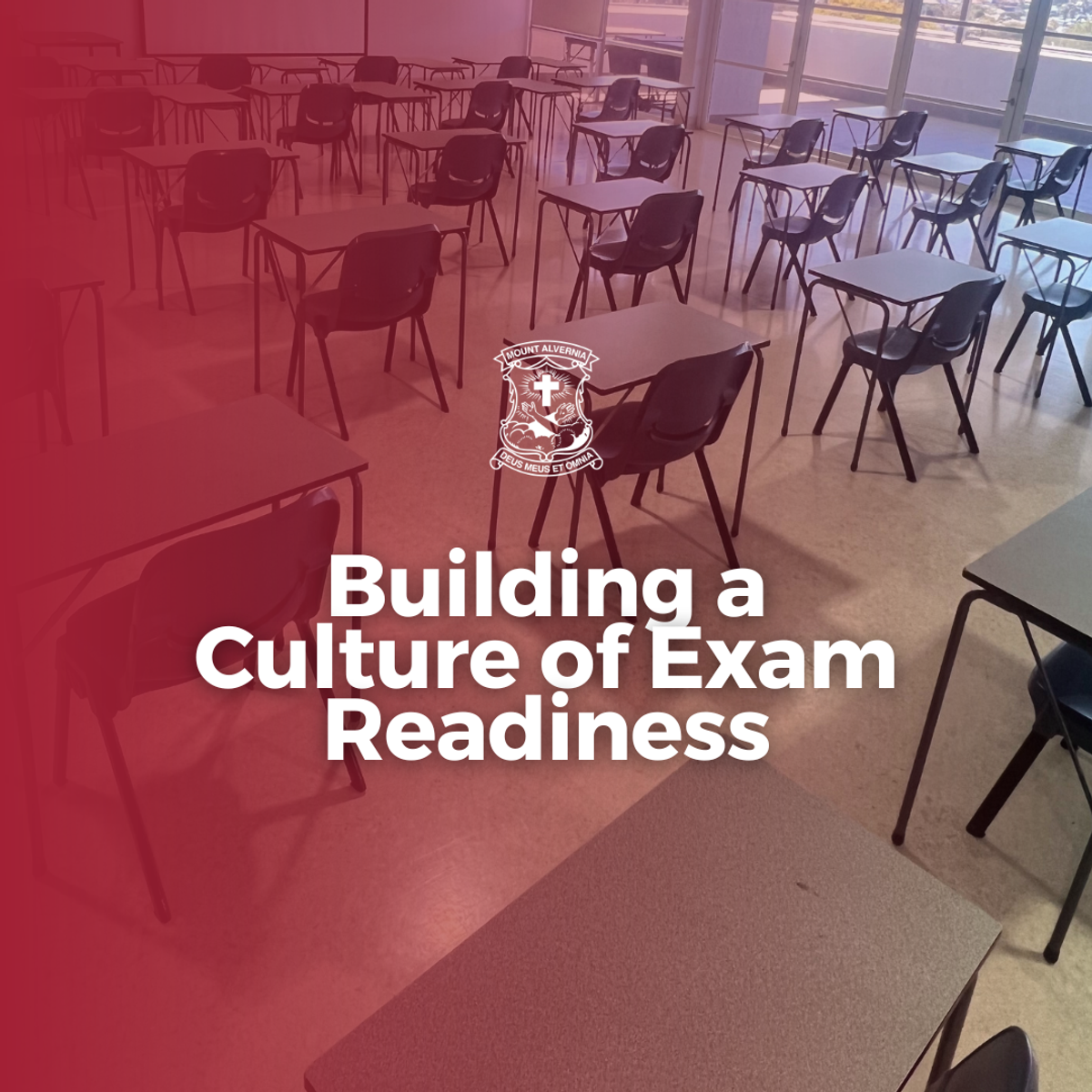Building a Culture of Exam Readiness
Dean of Transition & Outcomes - Years 10-12

Building a Culture of Exam Readiness
Dean of Transition & Outcomes - Years 10-12




It has indeed been a gratifying week to hear of and observe exam readiness in our senior phase students. There is no doubt that, anecdotally, many will attest to the feeling of anxiousness that timed assessment might bring on. Equally, there is much research that suggests that our response to our feelings when they arise in the lead up to exams can very much determine the outcome. Moreover, in understanding that when we try something new, begin something that has a degree of unpredictability, then we can anticipate that feelings of stress are likely to arise. Research suggests that “individuals who are clear about their feelings are more likely to thrive on anxiety and stress and possibly use these to achieve their goals and find satisfaction at work”.
In contrast, if the messaging we send ourselves is that unfamiliar situations which come with the very typical response and emotion of anxiousness is a ‘threat’, then we are less likely to manage moving forward. Students will often name exams as a threat because of the perception that the outcomes equate with possible loss of self-worth and that the outcomes determine a future that is immovable and singular in its direction.
What is needed to undo this thinking is a reframing of our thinking about exams. This might be achieved by:
Reading the signals from your body differently – Stress is your response to pressure and, … a small amount of pressure can be useful to keep you focused during exam time. It is the body’s natural and helpful way to tell you it is time to take action.
Acknowledging the work that has been done – Student work in cohort meetings, in classes, at home with well-planned spaced and interleaved revision, and at academic mentoring builds a profile for readiness in the exam. Failing to acknowledge this body of work can impact mindset going into an exam.
Consider the meaning of the exam – Where a student recognises that in formative assessment, exams are a tool which provide feedback rather than an end point which defines the learner for life. Further, if a student perceives that the outcome of an external exam precludes them from a pathway to their future, this works in complete opposition to the design of the QCE system and many pathways to post school aims. The messaging is always, there are many ways for a student to get to where they want to go.
Be kind to yourself leading up to, during and after the exam by ensuring you look after your wellbeing – eat well, hydrate, sleep well, find time for social down time, reward with a rest between exams.
Whether aware of it or not, our Year 12 students sitting their external exams have modelled excellence in mindset with exams. The sense of clarity and calm with which they have approached their exams so far is most commendable. They have used every square inch of exam time and returned to each exam with the same sense of readiness as the last. I mention this, because their actions have had impact on the Year 11 students.
This week members of the senior and extended leadership team have met with Year 11 students to review academic progress with the formative assessment of Units 1 and 2 now concluded. These discussions are truly reflective of the culture we have built in the College for student agency over learning. Meeting after meeting, students were able to name the growth strategies they have employed, and take on board with great maturity the next steps evident in close analysis and responsiveness to feedback. This self-awareness bodes well for the journey they begin into Units 3 & 4.
Further evidence of this growing culture of readiness was clear in reports from exam supervisors of the Year 11 Essential Maths exam this week. They spoke of the approach with which the students demonstrated before, during and after their exam. Wanting to dig a little further into the mindset of our students, I had discussions with a number them. They shared their insights in noting that in stressful times it is easy feel out of control but….
“It’s important to think about what you do know as a starting point rather focusing on what you might not know”
“I work hard to not go in with a negative mindset. I will actually physically move away from those who are declaring they ‘know nothing’ and it will be ‘too hard’”
“I circle back to questions I am unsure about so that I make sure I get marks for the ones I am confident with and leave time for those that need more”.
“I always make sure I have had a good sleep and a good breakfast so I don’t get hangry”
“ We know what we can and cannot take in the exam. Having the right equipment sorted the night before cuts out last minute stress”
“I used the first part of my exam to write down the formulas I might need so that as then work through the questions I have what I need in front of me”
As Year 10 and 11 students head into their exam block, and the Year 12 students continue with the remaining External Exams, they can be assured by the work they have done to build a positive culture around exam readiness. What a marvel!
Queensland State Government. (2023). Exam Stress. In Managing your thoughts. Retrieved November 3, 2003, from https://www.qld.gov.au/youth/looking-after-your-mental-health/%20-your-thoughts/exam-stress
Shean, M. (2019). Don’t calm down! Exam stress may not be fun but it can help you get better marks. [online] The Conversation. Available at: https://theconversation.com/dont-calm-down-exam-stress-may-not-be-fun-but-it-can-help-you-get-better-marks-124517.
Strack, J., Lopes, P., Esteves, F., & Fernandez-Berrocal, P. (2017). Must we suffer to succeed? When anxiety boosts motivation and performance. Journal of Individual Differences, 38(2), 113–124. https://doi.org/10.1027/1614-0001/a000228